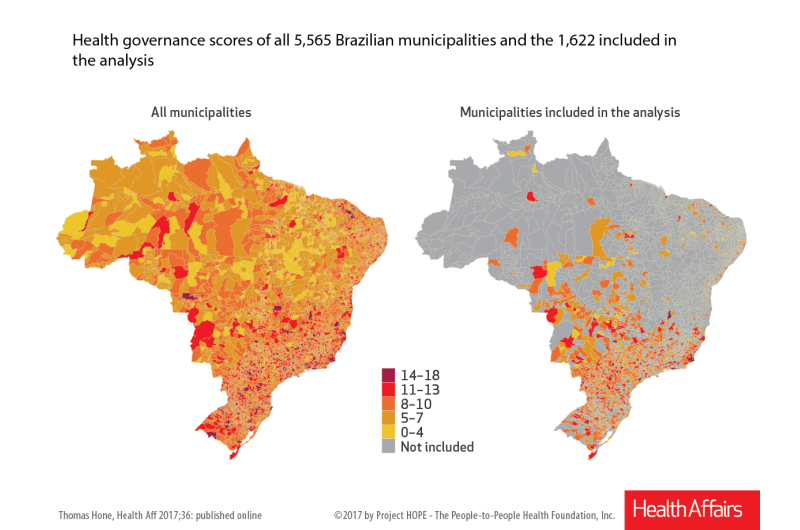Health governance scores all 5,565 Brazilian municipalities and the 1,622 included in the analysis. Credit: Project Hope
The January issue of Health Affairs includes a study that explores a much-discussed issue in global health: the role of governance in improving health, which is widely recognized as necessary but is difficult to tie to actual outcomes.
In this study, Thomas Hone, of Imperial College London, and coauthors examine whether expansion of the Brazilian Estratégia de Saúde da Família (ESF; family health strategy), a community-based primary care program, reduced amenable mortality (mortality avoidable with timely and effective health care) and whether this association varied by municipal health governance.
Using municipality data from Brazil for the years 2000-12, the authors found that while socioeconomic characteristics improved over the time period, increased primary care coverage was associated with reductions in rates of amenable mortality.
They also measured the strength of local health governance within each municipality (see the exhibit below) and demonstrated that municipalities with the highest governance scores had the largest reductions in mortality.
"Our findings indicate that expanding the provision of primary health care can have a substantial impact on mortality rates, but that strong local governance is essential to the implementation of effective services and the achievement of better health outcomes in terms of reduced amenable mortality rates," the authors conclude.
Journal information: Health Affairs
Provided by Health Affairs



















